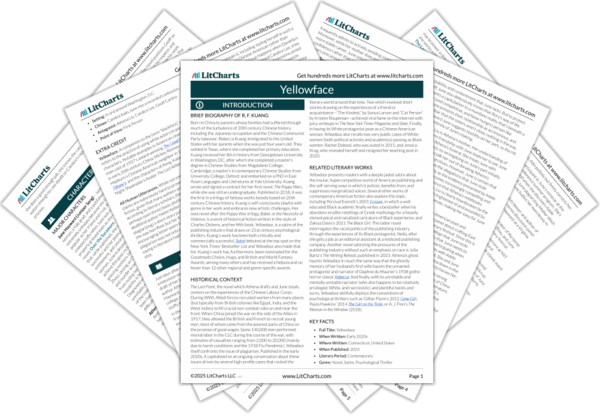Notably, other famous authors like Heidi Steel don’t care about using IP ideas; by turning up her nose June merely makes herself more vulnerable.
Yellowface positions Snowglobe’s pitch here as a clear example of cultural appropriation and the exploitation of painful history. June understands this (although it’s not clear if she objects on moral or economic grounds). But she’s unable or unwilling to see how her actions and the changes she imposed on
The Last Front played out the same dynamic. She’s either clueless about her own biases and cultural appropriation, or she simply considers herself in a superior category to most people because she knows how to express the correct, socially accepted beliefs.
